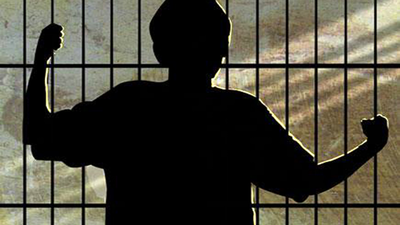ARTICLE AD BOX

Pune Police helps juvenile offenders reintegrate with skills and respect
PUNE: "I was 16 when I was held in a dacoity case (robbery where eight juveniles were booked) with two other friends and brought to a police station. The 'Dada' whom we used to admire as our role model never came to help.
It was our parents whom we saw crying and begging in front of the police for us. We committed the crime for a small amount of money (Rs 500) as we thought this was the best way to earn. Fortunately, we got bail, and Pune Police started our counselling through people from their Mission Parivartan initiative. We learnt skills to prepare watches, Ganpati, sleeping mattresses, and bags. Then we got orders from various police stations.
The best feeling was to see police officials from the same police station where we were kept as criminals, treating us with respect, offering tea and biscuits, and talking to us like friends.
To be honest, it was one of the best feelings of my life," says a 19-year-old boy who is one of the over 700 juvenile offenders who were rehabilitated and reformed through Pune Police’s initiative Mission Parivartan, with none indulging in repeated crime.
They were counselled through the Mission Parivartan initiative of Pune Police and were made to learn new skills. Now, they have been given contract work by police and jail authorities. The same authorities who once mistreated them for crime now give them respect and offer tea and biscuits when they visit. Follow-up with the parents helped as well.Similarly, a teenager from the Lashkar police station area, who was booked for two murders when he was only 16, said, "I started indulging in a wrong group of people who were committing crimes for money.
I wanted to become a 'Bhai' because of the respect and money they flaunt. But when I was booked for the murder, I thought it was the end of the world for me. At that time, I was not treated like a criminal. I was given an opportunity, and now I feel a part of society. I have learnt skills and live in a different city where I have set up a juice shop for myself."A 14-year-old boy shot at an elder boy because he used to bully him. The bullet pierced through the shoulder, and the former was booked for attempted murder.
Police, during the investigation, found that the boy was part of a local gang who helped him get the country-made pistol. The boy was rehabilitated, and various sessions related to anger management and skill development helped him.Joint Commissioner Ranjan Kumar Sharma told TOI, "In 2023, we found that many juveniles were engaged in criminal activities. There were a few repeat offenders as well, which was a real worry.
We wanted to do something for them so that they could be brought to the mainstream. After various sessions and consultations, we found that if we could provide skill training to the children, it would be beneficial to them as well as their families.
We initiated 'Mission Parivartan' with the support of an NGO. Gradually, their mothers and many other women from poor backgrounds also got connected with the mission initiative.""We have data on nearly 4,000 juvenile offenders, and we have reached nearly 1,500 juveniles so far. Over 700 are regularly in touch and have not indulged in criminal activities and have moved into the mainstream. The CM’s Twitter handle has also shared and appreciated our efforts."Yogesh Jadhav, from Mission Parivartan, shared insights with TOI and said, "There are certain crimes which cannot be controlled; however, we ensure an offender doesn’t repeat the crime in the future.
We dig hard into the nature of the crime, the factors behind it, and the individual approach to empathise with the offender and his family through experts. Family issues, economic conditions, etc., have contributed to most of the juvenile crimes.
Many children were booked for crimes committed by the members of the gang they were linked with. We made a proper action plan, kept them away from mobile phones, provided skill training, and ensured they got regular work. Another thing we did was regular follow-ups with them and their families. I remember a 16-year-old boy of a vegetable seller who committed murder with a sickle over a petty dispute. We ensured anger management training for him. Now he is doing quite well, and one cannot believe that he once committed a brutal murder in full public view."

 2 hours ago
4
2 hours ago
4








 English (US) ·
English (US) ·